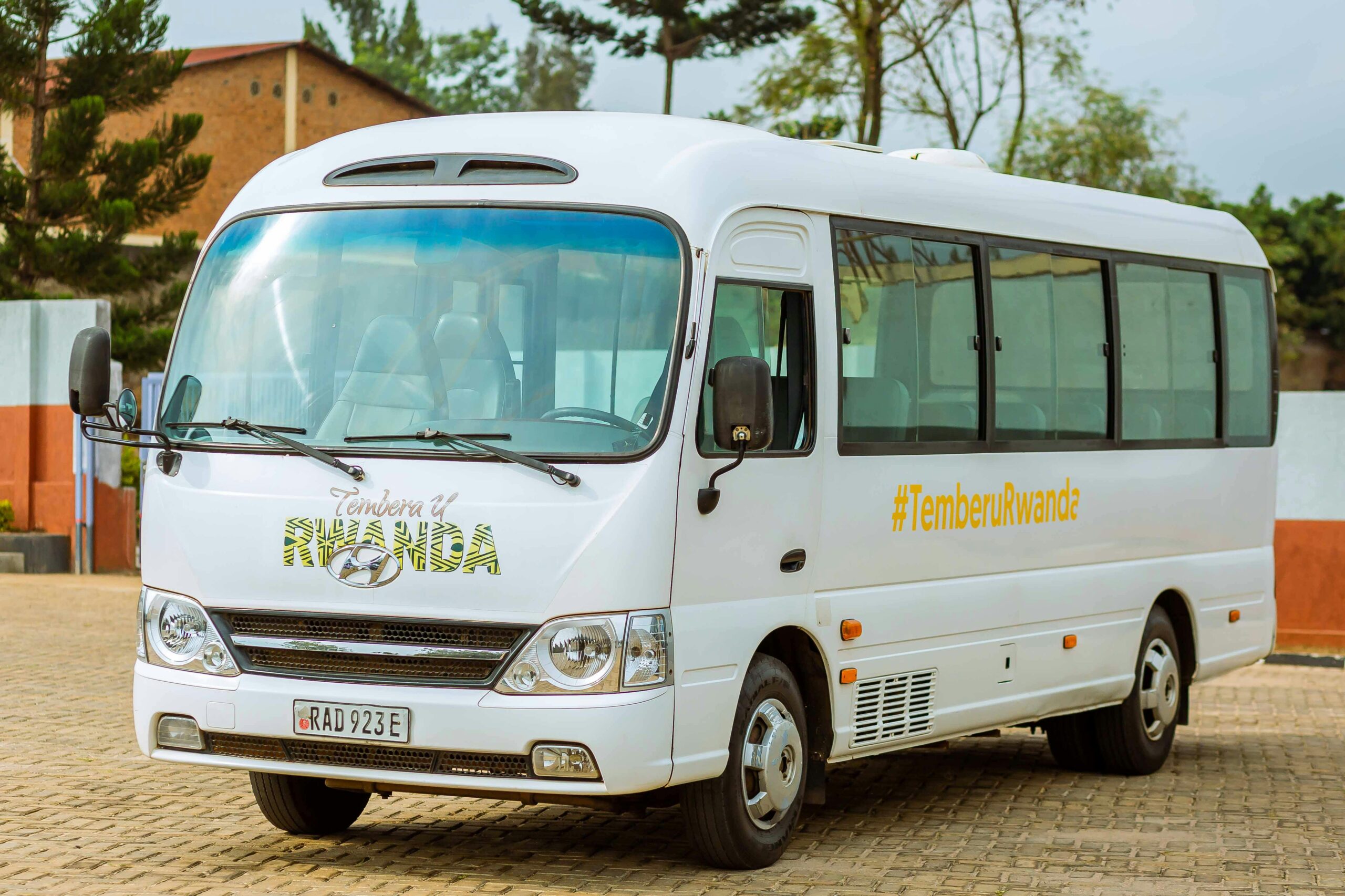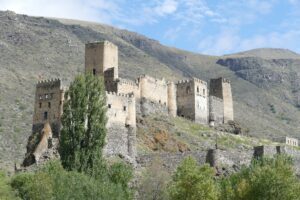
Rwanda is a landlocked country in Central Africa that is home to incredible natural beauty, a rich cultural heritage, and epic adventures just waiting to be discovered off the beaten path. While the capital city of Kigali has undergone rapid modernization in recent decades, rural Rwanda provides a glimpse into charming village life and interactions with locals who feel straight out of a different era. Beyond the bustling streets of Kigali lie rolling green hills dotted with thatched-roof homes, colorful coffee plantations perfuming the air, and opportunities for cultural immersion like nowhere else. For those seeking an authentic African experience with opportunities for wildlife viewing, hiking volcanoes, and connecting with local people in their natural habitat, rural Rwanda delivers countless unforgettable encounters.
Coffee Culture and the Heart of Rural Life
No trip to Rwanda would be complete without learning about and experiencing the country’s deeply ingrained coffee culture. Coffee plays a vital role in the national economy and daily life of rural communities, with brightly lit plantations scattered across mountainous regions and the hearty brew fueling social interactions and traditions. One of the best ways to understand coffee’s significance is by booking a tour of one of the many organic farms located within scenic mountain valleys. Tours typically last 2-3 hours and involve a comprehensive overview of the coffee growing process from seed to freshly brewed cup, with enthusiastic local guides sharing their extensive knowledge. Visitors have opportunities to sample different varietals, learn pruning and picking techniques, and witness the processing methods that set Rwandese coffee apart for its intense, rich flavor.
A visit to the Nyungwe Forest National Park, located in southwestern Rwanda near the border with Burundi, provides the ideal complement to a coffee farm tour. As the largest montane cloud forest in Africa and a biodiversity hotspot, Nyungwe is home to 13 species of primates, including habituated groups of chimpanzees and colobus monkeys, which can often be observed up close. With over 260 bird species, Nyungwe offers outstanding birdwatching opportunities. Hikes ranging from a few hours to multi-day treks allow for trekking into the pristine rainforest, which offers possibilities for wildlife sightings. Local guides possess in-depth knowledge about the flora and fauna and can identify clues in the surrounding environment. Overnight stays are available in simple but comfortable forest bungalows or campsites, immersed in the sounds of the jungle at night.
No trip to a coffee-growing region would be complete without exploring the vibrant town of Ruhengeri, located near the foothills of several volcanoes, including Mt. Bisoke, which towers over the town. In addition to housing Rwanda’s first coffee washing station, established in 1906, Ruhengeri serves as an ideal launching point for multi-day trekking routes up Mt. Bisoke or neighboring Mt. Karisimbi within Volcanoes National Park. Hiking to the crater lakes and observing golden monkeys amongst towering bamboo is a magical experience. When energy levels need replenishing, Ruhengeri’s bustling central market offers a perfect sampling of Rwandese cuisine, textiles, and people-watching opportunities in between expeditions.
Cultural Immersion and Community Connections
While incredible nature and adventure await in rural Rwanda’s protected areas, the real gems lie within welcoming rural villages and chances for cultural immersion through homestay programs. Staying with local families provides a privileged window into daily life, customs, foods, and the hospitality of the Rwandese people. Most villages offer basic but clean accommodation, with evenings spent socializing around a fire under the stars or assisting with farm chores. It’s a special opportunity to form genuine connections, practice conversational Kinyarwanda, and experience what life is truly like outside of guidebook descriptions.
The villages of Mutobo and Nyakinama located a short distance from each other near Lake Muhazi in eastern Rwanda, are ideal options for a rural village stay. Situated on picturesque hillsides overlooking patchwork farmland and the glistening waters below, both villages welcome curious visitors keen to learn through experience. Getting to know families, helping with tasks like carrying freshwater or pounding maize, playing with the children, and sharing meals together provide meaningful cultural exchange far beyond what a day trip could offer. Going beyond surface-level encounters, homestays foster understanding on a profoundly human level and create lasting friendships between visitors and hosts alike.
For lovers of the outdoors, combine village stays with guided hikes to Sabyinyo Volcano or up Mt. Muhazi through banana and eucalyptus plantations, spotting blue monkeys in the trees. Cool off with a refreshing dip in Lake Muhazi’s azure waters. Another popular option is to join evening dance practices where visitors can learn traditional drumming, songs, and dances to perform themselves. Whether relaxing in a hammock under the shade of palm trees or immersed in local rhythms under the stars, these lively villages offer a culturally rich experience and some of Rwanda’s most memorable encounters.
Off-the-Beaten-Path Adventures
While Rwanda’s protected areas and community-based tourism programs provide enriching experiences, more adventurous travelers seeking thrills off well-worn trails will find numerous possibilities. Rock climbing, zip lining through rainforests, white water rafting Class III-IV rapids, and multi-day mountain biking itineraries showcase the untamed wilderness and challenging terrain with expert guidance.
Located just 3 hours from Kigali, Akagera National Park in eastern Rwanda offers Big five game viewing alongside adrenaline-pumping activities. Climbing and rappelling 40-meter tall granite cliffs with ropes and harnesses while taking in panoramic savanna views provides an adrenaline rush. For those with a flair for the dramatic, try zip lining at speeds of 80kph over lush forest canopies and grasslands, spotting elephants and buffalo below. Combining nature and adventure, tours can also include game drives in open-top vehicles and walking safaris to observe hippos, crocodiles, elephant families, and over 500 bird species up close.
For multi-day rugged adventures off the beaten path, join experienced trekking and mountaineering outfitters for challenging routes through remote regions. Options include trekking the volcanic peaks and rainforests of Mgahinga Gorilla National Park along Rwanda’s southwest border, circumventing the peaks of the Bisoke-Gahinga-Muhabura massif, or an epic week-long trans-Rwanda trek through terraced hillsides and jungle connecting volcanoes, lakes, and villages along rugged trails. Experienced local guides carry all necessary equipment and supplies, setting up camp each evening and cooking hearty meals over an open fire under the stars. It’s wilderness exploration at its finest for those seeking an authentic cultural and physical challenge in magnificent scenery.
Responsible Tourism
While adventures in rural Rwanda’s natural areas, communities, and challenging terrain provide once-in-a-lifetime experiences, it’s important for visitors to consider responsible and sustainable practices during their travels.
Rwanda has made immense progress since the 1994 Genocide but still faces economic hardships in many villages. Purchasing local handicrafts, food, and other goods directly supports individuals and families. Tips for exceptional service, such as a home-cooked meal or impromptu dance performance, go a long way. Respecting cultural norms like dressing modestly, removing shoes indoors, and following social cues prevents unintended offense.
Visiting accredited eco-lodges, camps, and tour companies that adhere to high environmental and social responsibility standards ensures minimal impact. Using authorized operators also protects visitors and provides economic opportunities regulated by the Rwanda Development Board for quality control.
Respecting protected areas’ regulations prevents disturbance to fragile ecosystems and wildlife. Obeying guides’ instructions during trails, drives, and activities mitigates hazards and respects community safety rules. Using reliable waste disposal methods and practicing Leave No Trace principles in remote wilderness areas maintains a pristine natural heritage for future generations.
With compassion and open-mindedness, travelers can experience transformative adventures in rural Rwanda while supporting sustainable development and strengthening intercultural understanding for years to come. Responsible and respectful practices create positive change at both community and ecological levels in this breathtaking East African country.
FAQs about Rural Adventures in Rwanda
Is it safe to travel in rural areas?
Rwanda is considered one of the safest countries in Africa for tourism. Rural regions have low crime rates, and communities welcome respectful visitors. Tour operators rated by the Rwanda Development Board provide expertise, vehicles, and oversight to ensure safety during activities and homestays. Basic safety precautions like not walking alone at night are recommended.
What is the climate like, and what are the best months to visit?
Rwanda’s climate varies by region but remains mild year-round, with average highs of 23-27°C. The long dry season from mid-May to September offers ideal weather for hiking and minimal rains, while December-February sees heavier showers. Wildlife viewing is excellent year-round in protected areas.
What languages are spoken, and is language training needed?
The main local language is Kinyarwanda, and it is spoken throughout the country. English and French are increasingly understood in tourist areas but not universally. While language training is not mandatory, learning some basic Kinyarwanda phrases will help travelers connect more authentically with locals. Tour guides provided by operators serve as translators as well.
How do I get around rural areas without a car?
Public minibusses called matatus connect many rural towns daily. Pre-booking transport with a tour operator allows seamless transportation between destinations in comfortable vehicles. Within villages, walking or mountain bikes are common for short distances. Operators can also arrange motorbike or car/driver rental if required.
What is the best way to experience authentic rural culture?
Homestays embedded within rural farming communities provide the most authentic cultural immersion. Guests participate in daily activities, learn Kinyarwanda, and form meaningful connections through friendship. Operators ethically screen community homestays to ensure high standards and support sustainable tourism.






